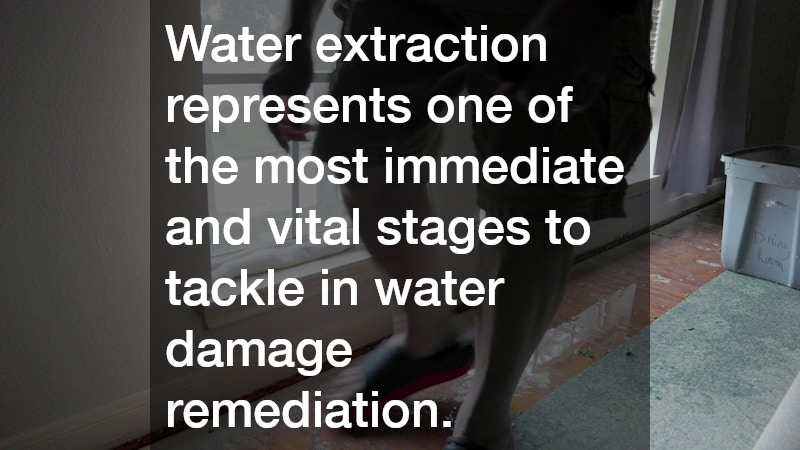Water damage remediation in Jacksonville, FL, is a critical process for both residential and commercial property owners. Understanding how to effectively manage and remedy water damage can prevent further damage and costly repairs. This article will provide important insights into water damage remediation, addressing the most common concerns and questions people have about the topic. Water damage, left unchecked, can lead to significant structural issues and health hazards, making prompt and effective remediation essential.
Knowledge about the causes and remediation process can empower property owners to take decisive and informed action, safeguarding not only the integrity of their property but also the health of its occupants.
How Does Water Damage Occur?
Water damage can occur as a result of various factors, including natural disasters like floods, leaks from broken pipes, faulty plumbing, heavy rainfall, or even appliance malfunctions. Understanding the potential causes of water damage can help in taking preventive measures to protect your property. Floods, for instance, are a major cause of water damage, not only bringing in excessive amounts of water but also potentially introducing contaminants into a home or business environment. Similarly, seemingly minor issues like a slow leak can lead to severe complications, including mold growth if not identified and rectified promptly.
Natural disasters such as hurricanes or torrential rainstorms demand preparedness on the part of homeowners and business operators. These events can lead to water levels rising, seeping into basements, or compromising the integrity of walls and foundations. Flash floods, in particular, offer little warning, underscoring the importance of having preventative measures in place. Building a comprehensive understanding of localized weather patterns and having a response plan can be crucial in mitigating potential damage.
Modern amenities such as dishwashers, washing machines, and water heaters, while convenient, can sometimes be the unsuspected culprits behind water damage. Malfunctions or failures in these systems can result in significant water leaks. Regular maintenance checks and timely repairs of appliances are vital. By ensuring that all household appliances are in good working condition, property owners can significantly reduce the risk of water-related incidents and the subsequent need for remediation.
What Are the Steps Involved in Water Damage Remediation?
There are several critical steps involved in the water damage remediation process. These include assessment and inspection, water extraction, drying and dehumidification, cleaning and sanitizing, and finally, restoration and repairs. Each step is crucial to ensure a thorough and effective remediation process. The initial assessment provides a blueprint for action, identifying areas of damage and the extent of water intrusion. Making an informed decision at this stage can guide the entire remediation process efficiently.
Water extraction represents one of the most immediate and vital stages to tackle in water damage remediation. Using specialized equipment, professionals can remove excessive standing water and prevent further intrusion into walls and flooring. This step mitigates the conditions favoring mold growth and further structural damage. Employing advanced drying systems and dehumidifiers at this stage intensifies the drying process, ensuring that hidden moisture pockets are reached and addressed, thereby curtailing further complications related to dampness.
Cleaning and sanitizing follow the drying process by focusing on removing debris, contaminants, and addressing health hazards like mold. This stage ensures remediation from a hygiene standpoint, fortifying the property against health risks that stagnant water often harbors. Once cleanliness is restored, the final step of restoration and repair steps into focus. This crucial process involves repairing structural elements, replacing drywalls, and ensuring the property’s functionality is restored to its pre-damage state. It’s these tailored measures that provide long-lasting solutions and ensure overall safety.
How to Choose the Right Water Damage Restoration Company?
Choosing the right professionals for water damage restoration can make a significant difference in the outcome. Key factors to consider include the company’s certifications, experience, response time, equipment used, and customer reviews. Making an informed choice can facilitate a smoother remediation process. Checking for industry-standard certifications like the Institute of Inspection, Cleaning, and Restoration Certification (IICRC) can provide assurance of the company’s commitment to quality and expertise in water damage restoration.
Experience dominates as a significant criterion when selecting a water damage restoration company. Companies with a robust history in water damage scenarios bring value through refined methodologies and a deep understanding of potential challenges. Furthermore, evaluating the average response time offered by the company is paramount. In emergencies, a swift response can notably lessen the extent of water damage and its resultant effects, preserving as much of the property as possible.
Examining the range and sophistication of equipment used by the restoration company is another critical step. Companies committed to employing the latest technology and high-grade equipment demonstrate a focus on efficiency and thoroughness in tackling water damage issues. Lastly, customer reviews and testimonials can provide indispensable perspectives on past performance, customer satisfaction, and effectiveness in handling insurance claims. By weighing these aspects, homeowners and business operators can make robust choices in safeguarding their property against water damage through effective restoration processes.
Conclusion
Water damage remediation is a complex but essential process to safeguard your property from further damage. By understanding how water damage occurs, the steps involved in remediation, and selecting the right restoration company, you can effectively handle water-related issues and minimize recovery time. Being proactive and informed can make all the difference in ensuring the longevity and safety of your home or business. Remember, while it is important to act swiftly in the face of water damage, being informed about every step lets you act confidently and decisively, ensuring the health and resilience of your property.





